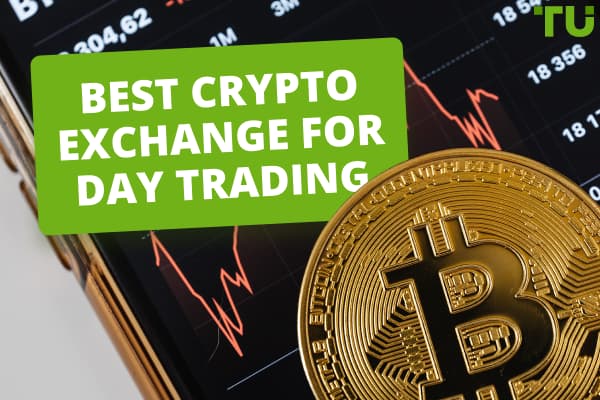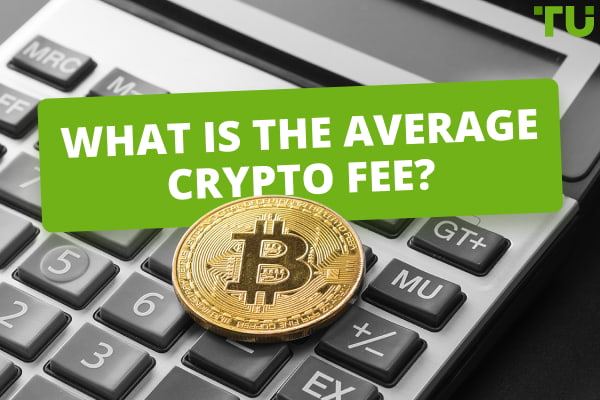Types Of Cryptocurrency Exchanges
The main two types of cryptocurrency exchanges are centralized and decentralized.
Centralized exchanges offer a full range of cryptocurrency services, including storing user money. They are under pressure from regulators and require verification.
Decentralized exchanges offer cryptocurrency exchange services without the possibility of storing it in the platform.
NOTE!
If you are planning to trade cryptocurrencies, and not just keep your savings in crypto wallets, we recommend that you choose one of the top brokers with reliable regulation and access to trading crypto CFDs. This type of trading will help you avoid holding your cryptocurrency in e-wallets of exchanges, which quite regularly get hacked. Also, availability of leverage will allow you to trade crypto CFDs for amounts much higher than your deposit.
Traders Union experts recommend considering Top 3 companies from our rating:
Cryptocurrency exchanges are online platforms that allow users to buy, sell, and exchange cryptocurrencies. They play an important role in the development of the crypto industry, providing liquidity and access to a wide range of cryptocurrencies.
Start trading cryptocurrencies with ByBitWhat is a cryptocurrency exchange
A cryptocurrency exchange is an online platform that allows users to buy, sell, and exchange cryptocurrencies. It plays an important role in the development of the crypto industry, providing liquidity and access to a wide range of cryptocurrencies.
The main functions of a cryptocurrency exchange are:
Buying and selling cryptocurrencies: This is the main function of any cryptocurrency exchange. Users can buy cryptocurrencies with fiat money (such as US dollars or euros) or with other cryptocurrencies.
Exchanging cryptocurrencies: Users can exchange cryptocurrencies with each other. For example, a user can exchange Bitcoin for Ethereum or vice versa.
Trading cryptocurrencies: Users can trade cryptocurrencies on the exchange using various trading strategies. For example, users can buy cryptocurrencies in the hope of their price rising or sell cryptocurrencies in the hope of their price falling.
Cryptocurrency exchanges may also offer additional features, such as:
Cryptocurrency storage: Some exchanges offer cryptocurrency storage services to their users.
Margin trading: Margin trading allows users to trade cryptocurrencies using borrowed funds.
Futures trading: Futures trading allows users to trade contracts to buy or sell cryptocurrencies in the future at a predetermined price.
Options trading: Options trading allows users to buy or sell the right to buy or sell cryptocurrencies in the future at a predetermined price.
Types of cryptocurrency exchanges
There are many different types of cryptocurrency exchanges, which differ in a number of factors, including:
Exchange type: centralized or decentralized.
Functionality: spot, futures, options, and other.
Regional focus: local or global.
Licensing: licensed or unregulated.
Centralized Exchanges
Centralized exchanges (CEXs) are the most common type of cryptocurrency exchange. They are operated by a central authority that controls all activity on the exchange. CEXs offer a wide range of functionality, including spot, futures, and options trading, as well as margin trading.
👍 Advantages of CEXs:
• Ease of use: CEXs are easy to use and allow users to quickly and easily buy, sell, and exchange cryptocurrencies.
• Security: CEXs store users' cryptocurrencies in their own wallets, which provides a high level of security.
• Liquidity: CEXs have high liquidity, which allows users to easily buy and sell cryptocurrencies at favorable prices.
👎 Disadvantages of CEXs:
• Centralization: CEXs are operated by a central authority, which can lead to security and transparency issues.
• Fees: CEXs charge fees for transactions, which can be high.
Decentralized Exchanges
Decentralized exchanges (DEXs) are exchanges that are not operated by a central authority. Instead, they use smart contracts to manage activity on the exchange. DEXs offer a higher level of security and transparency than CEXs, but they are also less user-friendly.
👍 Advantages of DEXs:
• Decentralization: DEXs are not operated by a central authority, which provides a high level of security and transparency.
• Reduced fees: DEXs charge lower fees than CEXs.
👎 Disadvantages of DEXs:
• Inconvenience: DEXs are more difficult to use than CEXs.
• Low liquidity: DEXs have lower liquidity than CEXs.
Comparison table of CEX and DEX exchanges
| Criteria | CEX | DEX |
|---|---|---|
|
Type of exchange |
Centralized |
Decentralized |
|
Control |
By a central authority |
By smart contracts |
|
Security |
Lower than DEX |
Higher than CEX |
|
Liquidity |
Higher than DEX |
Lower than CEX |
|
Ease of use |
Higher than DEX |
Lower than CEX |
|
Fees |
Higher than DEX |
Lower than CEX |
|
Functionality |
Wider than DEX |
Narrower than CEX |
|
Regulation |
Stronger than DEX |
Weaker than CEX |
Other types of cryptocurrency exchanges:
Spot exchanges are exchanges where cryptocurrencies are traded in real time. Users can buy and sell cryptocurrencies at the current market price.
Futures exchanges allow users to trade futures contracts on cryptocurrencies. Futures contracts are agreements that obligate a buyer to purchase or a seller to sell an asset in the future at a predetermined price.
Options exchanges allow users to trade options contracts on cryptocurrencies. Options contracts give a buyer the right, but not the obligation, to purchase or sell an asset in the future at a predetermined price.
Local exchanges are focused on a specific region or country. They offer support for local currencies and are convenient for users who reside in that region.
Global exchanges are focused on the international market. They offer a wide range of functionality and are accessible to users from all countries.
Licensed exchanges have received permission from government authorities to provide cryptocurrency trading services. Licensed exchanges are required to comply with certain rules and regulations, which provides a higher level of security for users.
Unregulated exchanges have not received permission from government authorities to provide cryptocurrency trading services. Unregulated exchanges are not required to comply with certain rules and regulations, which can lead to security issues for users.
Best crypto exchanges
Choosing a cryptocurrency exchange
When choosing a cryptocurrency exchange, it is important to consider the following factors:
Exchange type: centralized or decentralized
Functionality: spot, futures, options, and other
Regional focus: local or global
Licensing: licensed or unregulated
It is also important to read reviews from other users about the exchange before signing up.
In addition to the factors listed above, there are a few other things to keep in mind when choosing a cryptocurrency exchange. These include:
Customer support: Make sure the exchange offers good customer support in case you need help.
Security features: Look for an exchange that offers strong security features, such as two-factor authentication and cold storage.
Fees: Compare the fees charged by different exchanges before making a decision.
By carefully considering these factors, you can choose a cryptocurrency exchange that meets your needs and provides a safe and secure environment for your trading.
Conclusion
Cryptocurrency exchanges provide various platforms for trading diverse digital assets. There are several types of such exchanges, including Centralized Exchanges (CEX) and Decentralized Exchanges (DEX). Centralized exchanges, such as Binance or Coinbase, usually offer high liquidity and convenient features but require the provision of personal data and compliance with centralized control. Decentralized exchanges, such as Uniswap or SushiSwap, provide greater anonymity and user control over their funds but may face liquidity challenges.
The choice between centralized and decentralized exchanges depends on the trader's preferences: usability, control over funds, and the desired level of anonymity. It is essential to thoroughly research each type of exchange to tailor the choice to one's own needs and cryptocurrency trading strategies.
FAQs
What are the two types of crypto exchanges?
There are two main types of crypto exchanges: centralized and decentralized.
What are Centralised and Decentralised exchanges?
-
Centralized exchanges (CEX) are controlled by a single entity, such as a company or organization.
-
Decentralized exchanges (DEX) are not controlled by any central authority. Instead, they use smart contracts to facilitate trading.
Is Binance a DEX or CEX?
Binance is a centralized exchange. It is owned and operated by Binance Holdings Limited, a company registered in the Cayman Islands.
Is Uniswap a DEX or CEX?
Uniswap is a decentralized exchange. It is an open-source protocol that runs on the Ethereum blockchain.
Methodology for compiling our ratings of crypto exchanges
Traders Union applies a rigorous methodology to evaluate crypto exchanges using over 100 quantitative and qualitative criteria. Multiple parameters are given individual scores that feed into an overall rating.
Key aspects of the assessment include:
User reviews. Client reviews and feedback are analyzed to determine customer satisfaction levels. Reviews are fact-checked and verified.
Trading instruments. Exchanges are evaluated on the range of assets offered, as well as the breadth and depth of available markets.
Fees and commissions. All trading fees and commissions are analyzed comprehensively to determine overall costs for clients.
Trading platforms. Exchanges are assessed based on the variety, quality, and features of platforms offered to clients.
Extra services. Unique value propositions and useful features that provide traders with more options for yield generation.
Other factors like brand popularity, client support, and educational resources are also evaluated.
Glossary for novice traders
-
1
Broker
A broker is a legal entity or individual that performs as an intermediary when making trades in the financial markets. Private investors cannot trade without a broker, since only brokers can execute trades on the exchanges.
-
2
Cryptocurrency
Cryptocurrency is a type of digital or virtual currency that relies on cryptography for security. Unlike traditional currencies issued by governments (fiat currencies), cryptocurrencies operate on decentralized networks, typically based on blockchain technology.
-
3
Trading
Trading involves the act of buying and selling financial assets like stocks, currencies, or commodities with the intention of profiting from market price fluctuations. Traders employ various strategies, analysis techniques, and risk management practices to make informed decisions and optimize their chances of success in the financial markets.
-
4
Bitcoin
Bitcoin is a decentralized digital cryptocurrency that was created in 2009 by an anonymous individual or group using the pseudonym Satoshi Nakamoto. It operates on a technology called blockchain, which is a distributed ledger that records all transactions across a network of computers.
-
5
Ethereum
Ethereum is a decentralized blockchain platform and cryptocurrency that was proposed by Vitalik Buterin in late 2013 and development began in early 2014. It was designed as a versatile platform for creating decentralized applications (DApps) and smart contracts.
Team that worked on the article
Alex Smith is a professional day trader for a proprietary trading firm within the foreign exchange (forex) and crypto markets. His area of expertise is day trading and swing trading within the 15min-4hr time frames for both the London and NY open.
Dr. BJ Johnson is a PhD in English Language and an editor with over 15 years of experience. He earned his degree in English Language in the U.S and the UK. In 2020, Dr. Johnson joined the Traders Union team. Since then, he has created over 100 exclusive articles and edited over 300 articles of other authors.
Mirjan Hipolito is a journalist and news editor at Traders Union. She is an expert crypto writer with five years of experience in the financial markets. Her specialties are daily market news, price predictions, and Initial Coin Offerings (ICO).














